New ad blasts Jeb Bush for debate comment that his brother “kept us safe”

Progressive liberals are taking Jeb Bush to task for his comment during the second GOP debate that his brother — former President George W. Bush — “kept us safe.” A new attack ad from Americans United for Change will start nationwide on Monday. The campaign, which already premiered on the group’s Facebook page, will appear on several cable news stations and run for the next few days. “It’s as if Jeb Bush believes his brother’s presidency began on September 12th, 2001,” Americans United for Change President Brad Woodhouse told the Tampa Bay Times. “But we’re not letting Jeb rewrite history.” Woodhouse added that it was “convenient but not honest” to ignore the facts surrounding the worst attack on American soil since Pearl Harbor, happening on George W. Bush’s watch after the administration dismissed notices from intelligence officials on Osama bin Laden. Warnings were that bin Laden was “determined to strike in U.S.,” possibly using hijacked American planes. Before September 11, 2001, terrorism was a low priority for Bush, Woodhouse said; six months after the attacks, catching bin Laden was not a priority either, illustrated when Bush said, “I truly am not that concerned about him.” Bush spokesperson Tim Miller responded to the United for Change ad by telling the Times it was “Hillary Clinton’s political machine resorting to attacking Jeb over 9/11” and a “depressing example of just how extreme” the left has become. “If there’s one thing we should all agree on,” Miller continued, “it’s that in response to that horrific attack, the country came together with resolve in the face of evil to ensure we keep our country safe. “Today, while Jeb has offered a plan to defeat ISIS the Democrats have no strategy so they are left to make these craven attacks.”
For GOP candidates, better to be with pope than against him
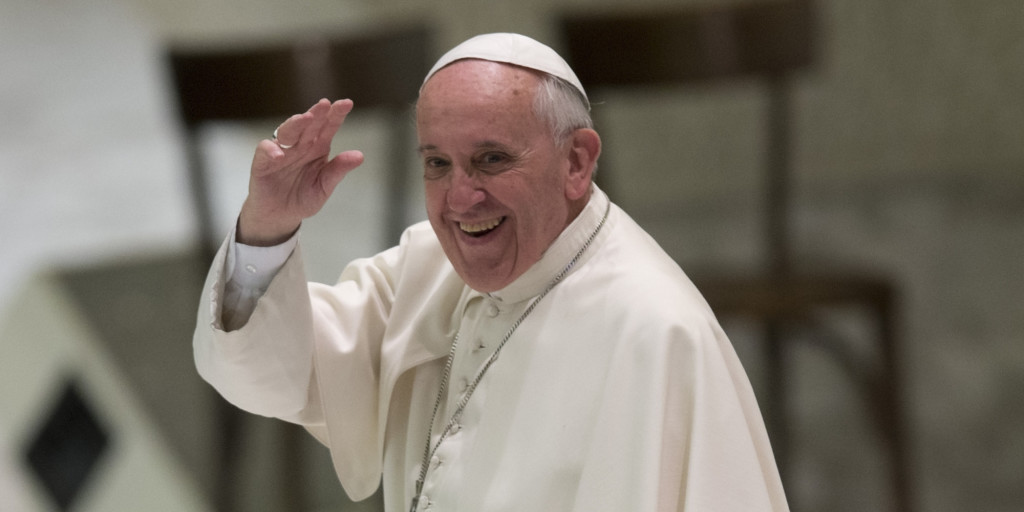
To some Republican presidential candidates, it’s better to be with the popular pope than against him. Marco Rubio, Rand Paul and Ted Cruz have deep policy differences with Pope Francis, but the senators will break off campaign travel to attend his address to Congress later this month, a centerpiece of his eagerly anticipated visit to the United States. Former Florida Gov. Jeb Bush, a devout Catholic, will attend Mass with Francis in Washington. New Jersey Gov. Chris Christie, another Catholic candidate, plans to attend one of the pope’s East Coast events. “Regardless of what the pope says or emphasizes, the simple fact of being associated with his visit is still significant for a candidate,” said David Campbell, a professor at the University of Notre Dame who studies religion and politics. “The images are very powerful.” Francis has become one of the world’s most popular figures since his 2013 election to the papacy, drawing praise for his humility and efforts to refocus the church on the poor and needy. He also has become involved in numerous hot-button political issues, often staking out positions that put him at odds with Republicans. The pope supports the Iran nuclear deal, which many GOP candidates pledge to tear up if they are elected president. As Republicans debate the place of immigrants in the U.S., the pope has urged countries to welcome those seeking refuge and has decried the “inhuman” conditions facing people crossing the U.S.-Mexico border. Francis was also instrumental in secret talks to restore diplomatic relations between the U.S. and Cuba, a rapprochement the GOP views as a premature reward for the island’s repressive government. In a heated primary where any break from party orthodoxy is a political risk, Republican candidates have stepped gingerly around their differences with Francis. When Francis issued an encyclical this year calling for aggressive international action to combat climate change, most Republicans made clear they had no problem with pope taking a position on the matter. But they suggested his stance would have little influence on their own views. “He is a moral authority and as a moral authority is reminding us of our obligation to be good caretakers of the planet,” Rubio, a practicing Catholic, said at the time. “I’m a political leader and my job as a policymaker is to act in the common good.” Bush, who was raised Episcopalian and converted to Catholicism as an adult, said it was best to leave climate change in the realm of politics, not religion. During a campaign stop Thursday in New Hampshire, Bush called the pope an “amazing man” and welcomed his emphasis on mercy and compassion. “I think he’s going to lift people’s spirits up,” Bush said about the pope’s visit to the U.S. “We’re in a time where there’s a lot of vulgarity and a lot of insults and a lot of just coarseness in our discourse. I’m not talking about politics, either. I’m talking about everyday life. “And here’s a man who comes with a gentle soul and I think it might be really healthy for our country to hear someone speak the way he does.” Not all GOP candidates plan to attend events with the pope. Among them are Wisconsin Gov. Scott Walker, whose spokeswoman said he didn’t expect to be in Washington during Francis’ visit, and Rick Santorum, the former Pennsylvania senator and devout Catholic, who was scheduled to be on a campaign trip to Iowa. American politicians have long struggled with how to balance their policy positions with the views of the Vatican. For Democrats, the focus has often been on the gulf between the party’s support for abortion rights and the church’s stern and contrary view. After John Kerry, a Catholic who backs abortion rights, captured the Democratic nomination in 2004, a top Vatican official issued a statement saying priests must deny Communion to politicians who hold that position. Francis has taken a more conciliatory tone on abortion, as well as homosexuality, but hasn’t changed church doctrine. President George W. Bush found himself at odds with the Vatican over the Iraq war. Both Pope John Paul II and his successor Benedict XVI vehemently opposed the war, yet each met Bush during their tenure. Charles Camosy, a theology professor at Fordham University, said that in interactions between politicians and popes, “politics is put aside and there’s respect shown.” Still, the timing of the pope’s visit — in the heart of fall primary campaigning — and his own schedule will make politics difficult to avoid. Francis will hold an Oval Office meeting Sept. 23 with President Barack Obama, who has highlighted areas where his agenda overlaps with the pope’s priorities, including income inequality. The pope will speak the following day on Capitol Hill, where at least some of the focus will be on the reaction to his remarks from the presidential candidates sitting in the audience. The pope’s message in Washington is expected to touch on some of the issues that are sources of disagreement with Republicans, though it’s unlikely he will insert himself directly into presidential politics. Still, as Campbell, the Notre Dame professor, noted, “One thing we’ve learned about Pope Francis is that he’s very unpredictable.” Republished with permission of the Associated Press.
No surprise: Tea Party activists prefer Ted Cruz over Jeb Bush
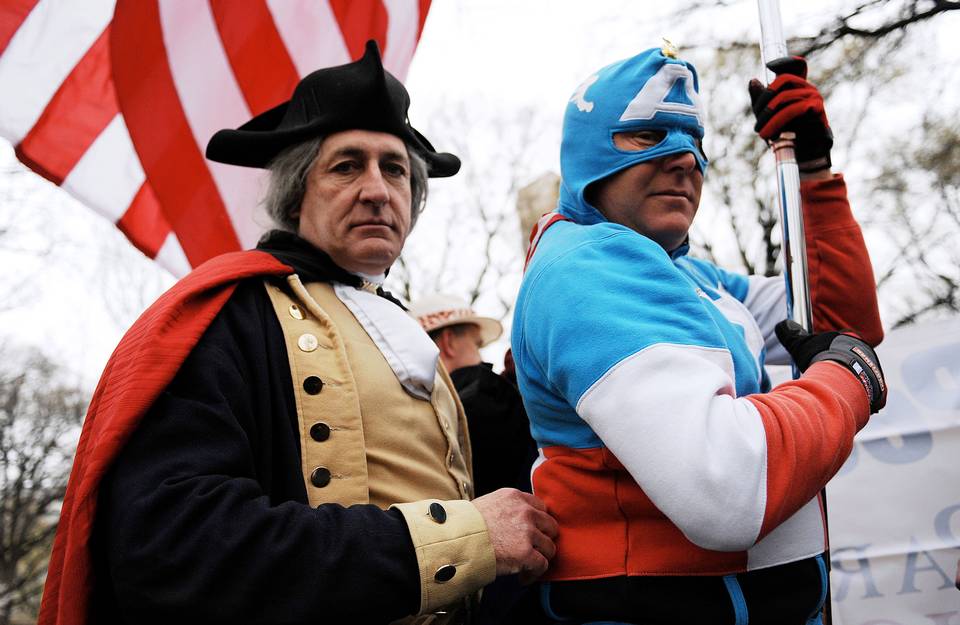
Senator Ted Cruz of Texas was the hands-down favorite of an Americans for Prosperity gathering this weekend, if the number and volume of ovations during the speeches of five presidential candidates who addressed the summit of Tea Party activists was the measure. At the other end of the spectrum was former Florida Governor Jeb Bush, a newcomer to events financed by conservative industrialists Charles and David Koch. Bush was attending his first national conference of Americans for Prosperity and was greeted with respectful but restrained applause by a group that rose essentially out of Republican dissatisfaction with federal spending under his brother, President George W. Bush. Cruz, the Tea Party favorite since his 2010 election, sparked deafening cheers in the Columbus Convention Center auditorium even before he took the stage. During his speech Saturday, he went on to promise to ‘‘repeal every word of Obamacare,’’ and “rip to shreds this catastrophic Iranian nuclear deal.’’ Each of Cruz’s lines was met with applause and cheers from the more than 3,000 activists. Bush, who spoke a day earlier, worked hard but earned far fewer cheers from the antitax, economic conservative audience from around the country. David White of Marietta, Ohio, was unimpressed with Bush. ‘‘He did not articulate any plan for what he intends to do as president,’’ he said. ‘‘He used his time to try and rearrange perception of his record in Florida.’’ Bush did stress his experience during eight years as Florida governor, noting tax cuts, reduction in the state government workforce, and an overhaul in the state’s education system. Cruz, on the other hand, laid out an agenda that consisted entirely of undoing actions taken by President Obama. The event is significant because it provides an opportunity for presidential hopefuls to impress the conservative group, which spent more than $30 million in ads against Obama’s reelection in 2012 and has activists, donors, and organizers in 36 states and an operating budget for 2016 of roughly $125 million. Senator Marco Rubio of Florida, who can trace his 2010 Senate election to Tea Party support, received hearty cheers, but less robust than Cruz, while taking a more policy-focused approach than Cruz’s more political stump speech. ‘‘The first thing we must do is become globally competitive again,’’ Rubio said. ‘‘That’s why we talk about tax reform. That’s why we talk about regulatory reform.’’ The two-day conference was also an opportunity for exposure for lesser-known candidates such as Governor Bobby Jindal of Louisiana and former Texas Governor Rick Perry, who rank low in national polls among the field of 17 candidates. Republished with permission of the Associated Press.
Fresh from Iowa State Fair, Jeb Bush announces busy multi-state fundraising tour
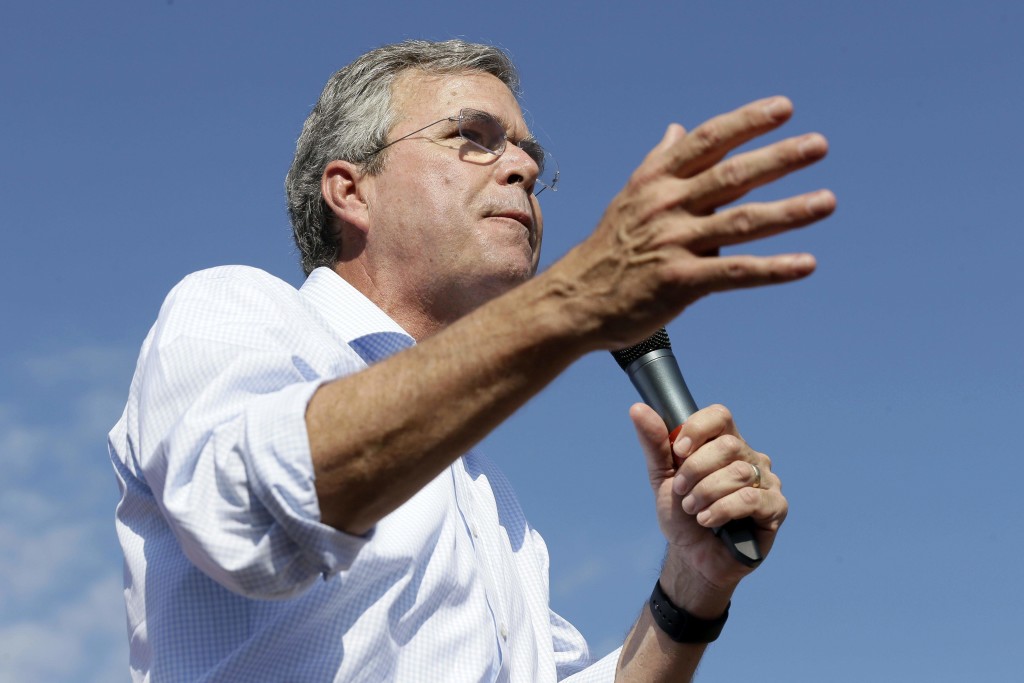
Now that the traditional Iowa State Fair food fest and political cattle call has concluded, Republican candidate Jeb Bush released his late-summer fundraising schedule. The former governor will be launching a busy multi-state tour through September 15. According to the National Finance Calendar obtained by Florida Politics, Bush and family members – including his brother, former President George W. Bush — will appear at a variety of meet-and-greet receptions starting Tuesday. The tour will include stops in Georgia, Massachusetts, Florida, Alabama, Virginia, the West Coast, both North and South Carolina, as well as several cities in New York State. August 18 – Evening Reception – Atlanta, Georgia. August 20 – Evening Reception – Nantucket, Massachusetts. August 21 — Luncheon with Mrs. Columba Bush — Charleston, South Carolina. August 22 — Evening Reception of Mission Next – Young Professionals with Jeb Bush, Jr. and Woody Johnson, Jeb 2016 National Finance Chairman — East Hampton, New York. August 24 – Luncheon Reception — McAllen, Texas; Evening Reception — Denver, Colorado. August 25 — Luncheon Reception — Salt Lake City, Utah; Evening Reception of Mission Next – Young Professionals with Jeb Bush, Jr. — Jacksonville, Florida. August 26 — Breakfast Reception — Birmingham, Alabama. August 27 — Breakfast Reception — Greensboro, North Carolina; Evening Reception — Richmond, Virginia. August 28 – Luncheon Reception — Virginia Beach, Virginia; Evening Reception — Southampton, New York. August 29 — Breakfast Reception — Sagaponack, New York; Luncheon Reception — Quogue, New York; Afternoon Reception — Wilmington, North Carolina. August 31 — Evening Reception — Miami, Florida. September 9 — Evening Reception — Boston, Massachusetts. September 10 — Luncheon Reception with President George W. Bush — New York, New York. September 14 — Evening Reception — Seattle, Washington. September 15 — Luncheon with Mrs. Columba Bush and Jeb Bush, Jr. — Los Angeles, California; Evening Reception — Portland, Oregon. Additional details on times and locations of any of the fundraising events is available by emailing finance@jeb2016.com. Bush also unveiled a proposed plan to support American veterans once he is elected president, a Veteran Affairs reform effort that includes expanding options for health care outside Veterans Administration without cutting funding for VA hospitals and medical staff. Bush’s proposal would “keep America’s promise to our veterans,” which he believes is the top priority for the next President of the United States. The full plan is online here. Also on Monday, Bush visited Columbia, South Carolina to meet with veterans and attend a town hall presented by the Concerned Veterans for America. Prior to the event, Bush announced the endorsement of 12 individual Medal of Honor recipients, which Fox News called “15 percent of all living recipients of the nation’s highest military honor.”
Steven Kurlander: Donald Trump “phenomenon” defines new age of American ShockReality politics
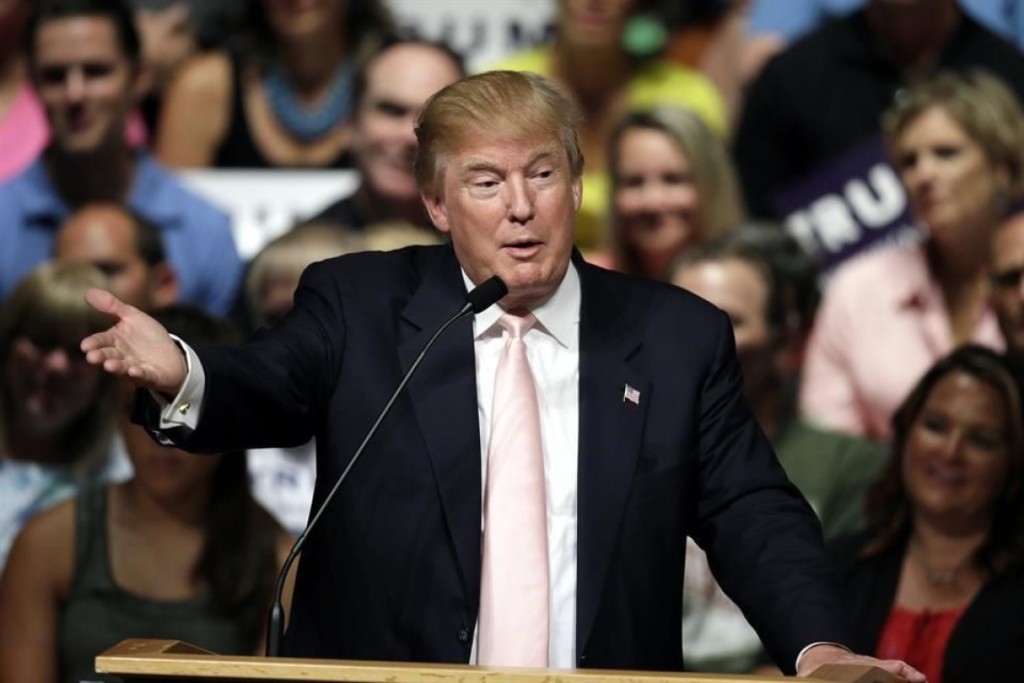
Whether you love him or hate him (I don’t think there’s an in-between), you have to admit Donald Trump has established his personal brand and fortune throughout the years by being extremely brash, creative, and smart: all with a very flippant attitude. Whether you like him or not, you have to admit that first in real estate, then reality TV, and now in politics, Trump has led the way in redefining the conventional and in turn achieving power, success, notoriety, power, and wealth. Now with Trump’s run for the White House, he is redefining American politics in terms of translating his brash, contentious style into what may be an unbeatable methodology of capturing the hearts and minds of disgruntled American voters. Trump has never been afraid to say what’s on the tip of his tongue. In the past, this propensity to attack, detract, and offend has lessened his intellectual credibility by defining his vision as Kardashian reality star style banter. But now his push-the-limit style converted into political rhetoric in a serious run for the White House, is playing well to many voters. He can berate Mexicans and Chinese, call John McCain a fake hero, be accused of raping his ex-wife and consorting with the mob, and even be described as uncharitable in his giving. Right now, he’s more than Ronald Reagan teflon, he’s kryptonite. Whether they are Republican, Democrat or a growing number of independent voters, American voters are tired most living paycheck to paycheck with no hope of digging out of debt. They are frustrated with a lackluster economy, ineffective governance in both Washington and state capitals, and continuous undeclared war. Most importantly, no matter where they stand in the political spectrum, the electorate is fed up with traditional mainstream politics, and even fringe Tea Party and leftist politics, too. In his ShockReality manner, Trump is spouting off truisms that Americans are feeling, but won’t enunciate on their own. If you believe the polls, Trump’s ShockReality messaging is playing well with the Republican base,. with him leaping ahead in a crowded pack of GOP hopefuls. No matter what he says, Americans now used to years of watching reality TV, want more from him, even demand more, with really no severe consequences to his popularity in a fast 24-7 news cycle that keeps moving on to the next sound bite. Some, though, say it’s one thing to practice ShockReality politics, it’s another to get down to the basics of backing up acerbic banter with hard policy. A major criticism, which shows signs of being out of touch with the true state of American politics, says he needs to come up with solutions and not just lash out about systemic problems in 2015 America. In recognizing his success so far in his messaging, David A. Fahrenthold in The Washington Post wrote: “But, so far, he’s missing something basic: a policy platform. A formal list of Trump’s ideas for America.” Here’s the game changer that Trump recognizes and no one else wants to admit: Americans don’t need or demand a policy platform for a presidential candidate to earn their vote. They just want some serious change, no matter how it comes. They want instead, a president, or any politician, who is sympathetic to their many frustrations and fearless enough to say what they feel, what they want, and want they need. It’s simple: They want a great America again. And Trump’s ShockReality political style works better than the Tea Party rhetoric precisely because it is not chained down in inflexible ideology. Instead, it stimulates a hope that President Obama correctly identified and ran on in 2008, but failed, like George W. Bush before him to deliver during his term in office. Donald Trump, and even now Joe Biden too with his own style of shooting off his mouth, is about to change American presidential politics for good. Calling Trump’s ShockReality messaging a phenomenon, and discounting his 2016 run, in our age of disdain is not only a mistake, but a lack of vision of the future of American politics. Steven Kurlander blogs at Kurly’s Kommentary (stevenkurlander.com) and writes for Context Florida and The Huffington Post and can be found on Twitter @Kurlykomments. He lives in Monticello, N.Y.
Jeb Bush rides Uber to San Francisco startup meeting
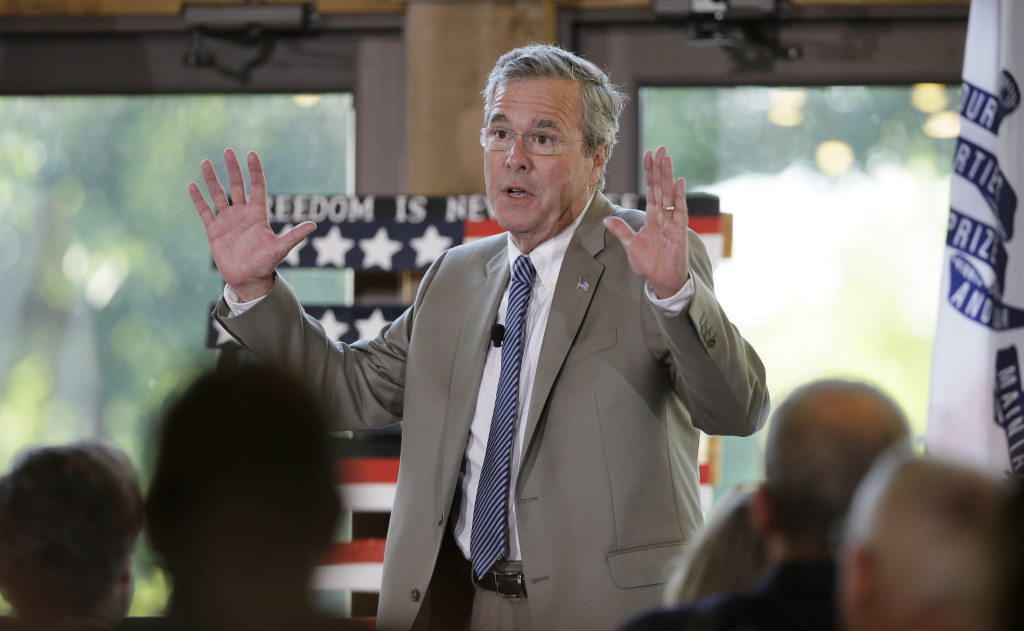
Presidential contender Jeb Bush used the ride-sharing service Uber to arrive Thursday at a startup where he was expected to talk up the benefits of small business and entrepreneurship as part of a fundraising swing through the San Francisco Bay Area. Bush pulled up at Thumbtack headquarters in the front seat of a black Toyota Camry being driven for Uber. Uber connects travelers with various cars through its smartphone app. Uber drivers are independent contractors, not employees, so they aren’t eligible for overtime pay, unemployment insurance or workers’ compensation. Bush’s potential rival, Hillary Clinton, has promised to crack down on companies that wrongly classify workers as contractors. She has praised the “gig economy” for creating exciting opportunities but has also said it is raising hard questions about workplace protections. Bush’s visit to San Francisco, a Democratic stronghold and home to U.S. House Minority Leader Nancy Pelosi, comes as a new Associated Press-GfK poll shows that negative views of the former Florida governor have ticked up. Forty-four percent say they have an unfavorable view, up from 36 percent in April. Among Republicans, 53 percent have a favorable view and 27 percent have an unfavorable view of Bush. Bush and supporting super PACs have raised a combined $114 million for the 2016 presidential campaign, outraising other candidates in the jam-packed GOP field. Donald Trump recently has emerged as a front-runner in the GOP field, drawing attention and criticism for his tough talk on illegal immigration. San Francisco has been a focal point of the immigration debate following the arrest of Juan Francisco Lopez-Sanchez, a Mexican who had been deported five times and now is charged with killing a woman while she walked on a pier with her father. Bush has been among the GOP candidates who have criticized Trump’s harsh comments claiming Mexico is sending its criminals to the United States. After visiting Thumbtack, Bush is scheduled to attend a fundraising luncheon in Silicon Valley. There also was a $2,700-per-person reception at a home in San Francisco on Wednesday night. Thumbtack was started by CEO Marco Zappacosta and President Jonathan Swanson. They served as aides to economic advisers in the White House administration of Jeb’s older brother, George W. Bush. Thumbtack aims to link people with service providers without the usual back and forth of phone calls or emails. Customers go online to specify what they want — for example, a portrait photographer for a specific date — and the company returns up to five names of providers that fit the bill, with bid prices attached. The company is named after the longtime practice of people who advertise their services via a notice tacked to a bulletin board. Thumbtack spokeswoman Michele Husak said the visit is not an endorsement of Bush’s candidacy. “Any politician who reaches out to us,” she said, “we’re happy to welcome them.” Republished with permission of The Associated Press.
Overflowing GOP presidential field has Fox News in demand
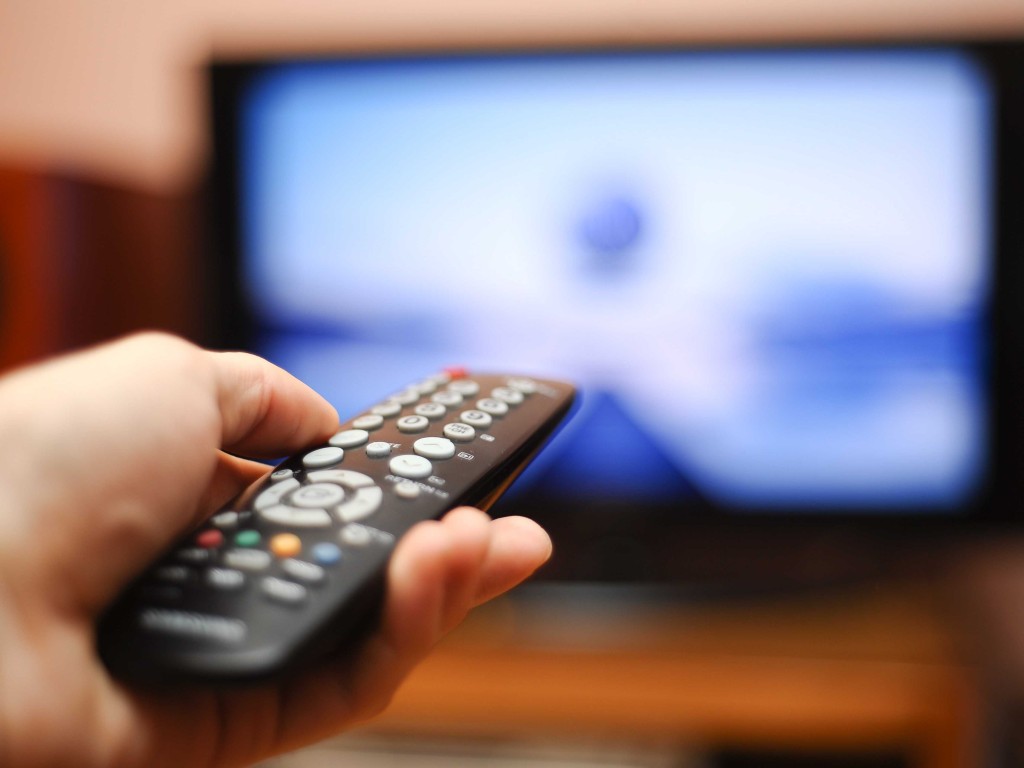
It’s the stuff of Republican nightmares: Fox News runs out of advertising time. But in an election bursting with money from an expected 17 Republican presidential candidates and dozens of outside groups supporting them, NCC Media, the company that handles placement of political ads for most of the country’s cable systems, is already working out the puzzle of how to accommodate everyone. “Fox is a revenue driver,” said Tim Kay, NCC’s director of political strategy. “It’s extremely popular as the way to reach Republican primary voters.” He added: “What we’re waiting to see is, is everyone going to want Fox News, or are they branching out to different channels to try to capture some of those same demographics?” It’s not just Fox News. Broadcast stations in the early primary voting states of Iowa, New Hampshire, South Carolina and Nevada are preparing for a 2016 onslaught — which they welcome, because presidential ads boost their bottom lines every four years. For television viewers? Welcome back to campaign season. If you live in New Hampshire or Iowa, you’re already seeing the smiling faces of at least four Republican presidential candidates. Beginning Thursday, Ohio Gov. John Kasich will be talking in a commercial about how he learned from his father, “Do your best to look out for other people.” The ad, which costs about $1 million to broadcast across New Hampshire, was paid for by New Day for America, an outside group backing the governor, who has yet to make his candidacy official. Ex-Texas Gov. Rick Perry and Louisiana Gov. Bobby Jindal, both declared GOP presidential candidates, have been introducing themselves to Iowans thanks to ads put up by outside groups helping them. Texas Sen. Ted Cruz‘s campaign put a small run of commercials on the air soon after he announced his candidacy in late March. All of this with the nation’s first primary contest, in Iowa, more than 200 days away. Still, early advertising gets the candidates better known and can help presidential aspirants who are struggling near the bottom of the pack, said Will Feltus, a media researcher and planner at National Media who worked on George W. Bush‘s two presidential elections. “There’s a perception that you’re not real until you’re on television,” Feltus said. “TV has a very positive effect on supporters, on donors and on potential donors.” No one in the 2016 GOP class has focused on TV more than Florida Sen. Marco Rubio, whose campaign has placed orders for more than $12 million in ads that would start at the end of this year and air in Iowa, New Hampshire and other early primary states. “We raise money for one simple reason,” Rubio told The Associated Press while campaigning Wednesday in Iowa. “And that is to be able to pay for an organization that can deliver our message, and also be able to buy access and airtime to be able to communicate with voters.” Rubio is also getting a TV assist from a nonprofit policy group that keeps its donors secret. Conservative Solutions Project spent more than $3 million on commercials on national cable. Its ad focuses on the “bad deal” that President Barack Obama‘s administration is negotiating with Iran on nuclear weapons. “Sen. Marco Rubio is fighting to stop it,” the narrator says. It’s on — you guessed it — Fox News. The news outlet sucks up more political advertising spots than any other channel, NCC data show, and Republican primary elections drive that tally. CNN follows, then NBC, CBS and ABC. A study by the Pew Research Center helps to illustrate why: It found that 47 percent of conservatives consider Fox News their main and only news source, and 88 percent of them trust it. While three-fourth of all political commercials in the last presidential election were on cable, broadcast reaches far more viewers and accounts for the majority of the estimated $3 billion that political candidates and groups, from the president down to town sheriff, spent on ads in 2012. The political interest in cable ballooned in popularity after Obama’s 2008 campaign used viewership data to reach small groups of voters in critical locations — for example, college kids watching MTV at night in Columbus, Ohio. “Cable fits with the overall trend of campaigns to target particular kinds of voters,” said Travis Ridout, a co-director of the Wesleyan Media Project, which analyzes election advertising, including the $3 billion in 2012 spending. But unlike local news broadcasts with their bounty of advertising time available to politicians, cable offers just a couple of minutes per hour for those seeking to pipe an election message to a specific geographic location. “There’s only one problem,” Ridout said. “There’s not enough to go around.” Republished with permission of The Associated Press.
Democrats worry Jeb Bush’s Latino connections could hurt Hillary Clinton
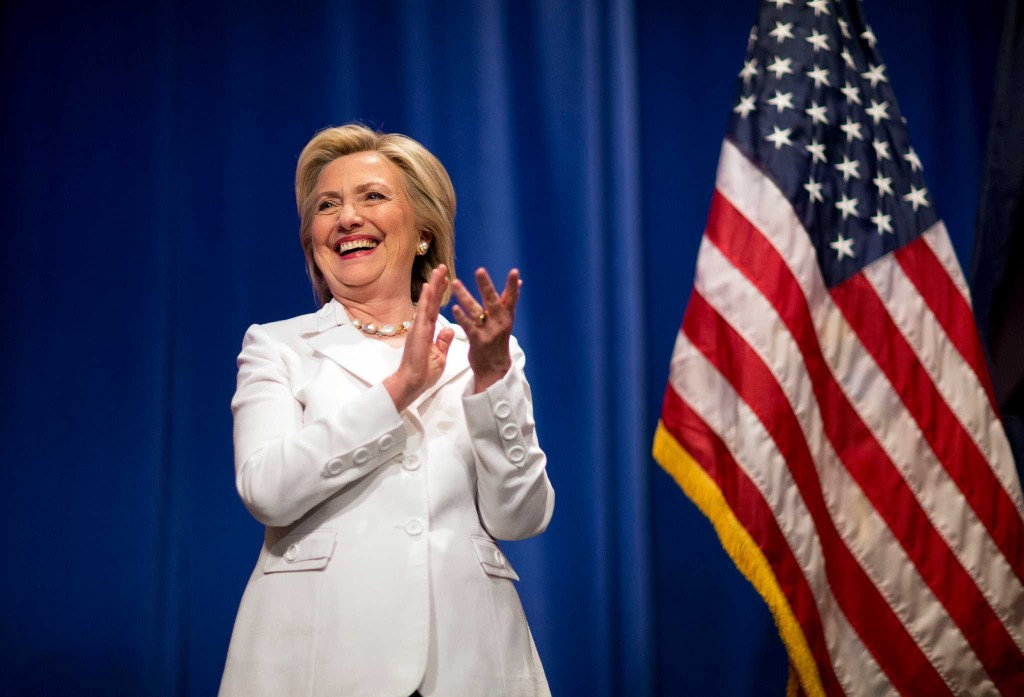
Hillary Rodham Clinton‘s campaign probably didn’t need a reminder of how crucial Latino voters could be to her presidential campaign. She got one anyway from Jeb Bush. The former Republican governor of Florida spoke fluent Spanish during his 2016 campaign kickoff this week, at which he introduced his wife, a native of Mexico, to an adoring crowd that cheered as he effortlessly deflected an attempt by immigration protests to interrupt his speech. “Ayúdennos a emprender una campaña que les da la bienvenida,” Bush said, which can be translated as, “Help us run a campaign that welcomes you.” Clinton will address the National Association of Latino Elected and Appointed Officials on Thursday in Las Vegas at a time when Bush’s bilingual pitch is prompting quiet pangs of concern among some Democratic strategists. They worry that a campaign that successfully presents Bush as the product of his Hispanic-infused South Florida home could cut into their party’s sizable demographic advantage with Latino voters, particularly in hard-fought states such as Florida, Colorado and Nevada. Bush comes across as “genuine and comfortable in his own skin,” said David Axelrod, a former strategist to President Barack Obama. “If he hangs tough and survives (the primary), Democrats should be sober. He would be a formidable opponent.” Bush may be the white scion of a political dynasty with deep roots in New England, but he has adopted Hispanic culture as his own. He made his career in the bilingual mecca of Miami, Spanish is his primary language at home, and he brags about buying cilantro to make Latin cuisine for his wife. On the campaign trail, Bush switches seamlessly between English and Spanish when answering questions, his skills in the language honed during the two years he spent in Venezuela as a young man. He also travels with Raul Henriques, a fresh-faced “body man” recently hired because Bush wanted a Spanish speaker. Republicans think Bush could help their party close a yawning political gap among Latino voters. GOP nominee Mitt Romney won just 27 percent of the Latino vote in 2012, the smallest margin in a decade. President George W. Bush, who had far weaker ties to the Hispanic community than his younger brother Jeb, earned as much as 40 percent of their vote during his 2004 re-election race. Maintaining a broad Democratic advantage among one of the country’s fastest-growing minority groups will be essential to Clinton’s path to the White House. Almost 28.2 million Hispanics will be eligible to vote in the 2016 presidential race, an increase of about 17 percent over 2012, according to an analysis of census data by the Center for American Progress, a liberal think tank. Clinton advisers have long singled Bush out from the rest of the crowded Republican field as a possible threat, arguing that his personal connection to the Latino community could help his campaign make inroads in several battleground states. “If Republicans were to win Florida and Ohio and Colorado, it’s hard to total up 270 for Democrats,” longtime Clinton confident Harold Ickes told reporters in November. For months, Clinton and her team have worked hard to develop and deepen relationships with Hispanic leaders. In May, she tapped Lorella Praeli, a leading immigrant-rights activist brought to the U.S. illegally as a young person, to lead outreach to Latino voters. Less than a month after announcing her plans to enter the race, Clinton called for a path to citizenship for undocumented immigrants. Her position left little political wiggle room for Republicans open to an immigration overhaul, Bush included, who favor granting legal status for some of the 11 million workers in the country illegally but not full citizenship. “We should offer hard-working, law-abiding immigrant families a path to citizenship,” Clinton said during her kickoff speech last weekend. “Not second-class status.” Campaigning in Iowa on Wednesday, Bush said he would support citizenship for some immigrants brought to the country illegally as children and a pathway to legal status for their parents, a step Obama took by executive order three years ago. But Bush’s efforts to woo Latinos may be complicated by the Republican primaries, where a vocal conservative minority holds outsized influence. In an indication of the potential toxicity of the issue to his primary bid, Bush had no plans to mention immigration during his Tuesday kickoff speech. But he couldn’t resist responding to the chants of protesters heckling him from the crowd with a pledge to tackle immigration legislation. “I believe what I believe, and I believe in comprehensive immigration reform,” he said in Iowa the following day. “People don’t agree with me in my own party, not everybody, but, trust me, there are a lot of people that have a differing view.” Republished with permission of The Associated Press.
Is Jeb Bush’s economic growth goal realistic?

Republican presidential candidate Jeb Bush says there’s “not a reason in the world” why the U.S. economy can’t grow at 4 percent annually. Actually, there are a bunch of reasons it probably can’t. Many economists say the U.S. economy is ill equipped to grow consistently at even close to 4 percent. Current forecasts put growth averaging half that rate. Any president, Republican or Democrat, would have to overcome decades-long trends that are largely beyond the control of the Oval Office. Those trends include the retirements of the vast generation of baby boomers, an exodus that limits the number of workers in the economy. Rising automation and low-wage competition overseas are among other factors. A result has been meager income growth, which has cut into the consumer spending that drives most economic growth. “It would require substantial changes in fiscal and regulatory policy that I don’t believe any president could reasonably expect to enact in one term,” said Robert Stein, an economist at First Trust Advisors who was a Treasury Department official during George W. Bush‘s presidency. In his campaign announcement on Monday, Jeb Bush said, “There is not a reason in the world why we cannot grow at a rate of 4 percent a year. And that will be my goal as president: 4 percent growth, and the 19 million new jobs that come with it.” The pledge originated from a plan by the George W. Bush Institute to achieve growth averaging 4 percent for a decade. Conservative economists defend the target as aspirational, a pledge that would leave the economy better off even if the next president fell short. “I’m less concerned about the number than the commitment to grow rapidly,” said Douglas Holtz-Eakin, an economist who has advised Republican presidential candidates and now is president of the American Action Forum. The historical odds of doubling growth from its current level are low. Only four of the 16 presidential terms since World War II have experienced annual economic growth averaging more than 4 percent after inflation, according to research published last year by Princeton University economists Alan Blinder and Mark Watson. President Harry Truman reaped the peace dividend as U.S. manufacturers helped rebuild nations devastated by World War II. The Kennedy and Johnson administrations enjoyed a boom because of tax cuts. And President Bill Clinton benefited during his second term from low interest rates and what eventually became a tech-stock bubble. There are two primary ways to increase an economy faster: add more workers or increase their efficiency so that each hour on the job generates more income. Neither factor looks spectacular enough to deliver 4 percent growth, particularly since the share of Americans working has drifted downward as the number of retirees has increased. “The demographics right now are for slowing population growth,” said Chad Stone, chief economist at the Center on Budget and Policy Priorities, a liberal think tank. The economy has 157.5 million workers, including the unemployed on the hunt for a job, according to the Labor Department. Their ranks increased just 0.3 percent in 2014, the best year for hiring since the late 1990s. When economic growth averaged about 4 percent during Clinton’s second term, the growth rate for the number of workers joining the economy averaged 1.5 percent, nearly five times higher than the current level. Because baby boomers are starting to retire, the nonpartisan Congressional Budget Office expects the rate will remain low and hinder broader growth. The CBO in January estimated that growth would average just 2.1 percent annually from 2018 to 2025. In theory, Bush as president could overcome that obstacle by welcoming substantially more immigrants in the United States. That would cause the growth rate of workers to rise much more quickly, said Michael Strain, deputy director of economic policy studies at the American Enterprise Institute, a conservative think tank. But efficiency gains — what economists call productivity — would still be a challenge. For the past seven years, productivity growth has averaged a poky 1.4 percent, according to the Labor Department. That’s nearly half its rate between 2000 and 2007. Economists say it’s generally difficult for government policymakers to unleash sudden bursts of productivity. One easy form of boosting productivity would involve government spending in infrastructure such as roads, bridges, ports and airports. Josh Bivens, director of research at the liberal Economic Policy Institute, sees these investments as the “most reliable lever” to bolster productivity. Yet he notes that a 10-year, $2.5 trillion government infrastructure program would increase economic growth only 0.2 to 0.3 percent annually. That increase would not be nearly enough to achieve consistent 4 percent growth after inflation. And the Republican presidential candidates have been committed to finding ways to shrink government’s footprint instead of introducing new spending programs. “There’s really no way,” Bivens said. Republished with permission of The Associated Press.
Jeb Bush has optimistic message, faces challenges in ’16 bid
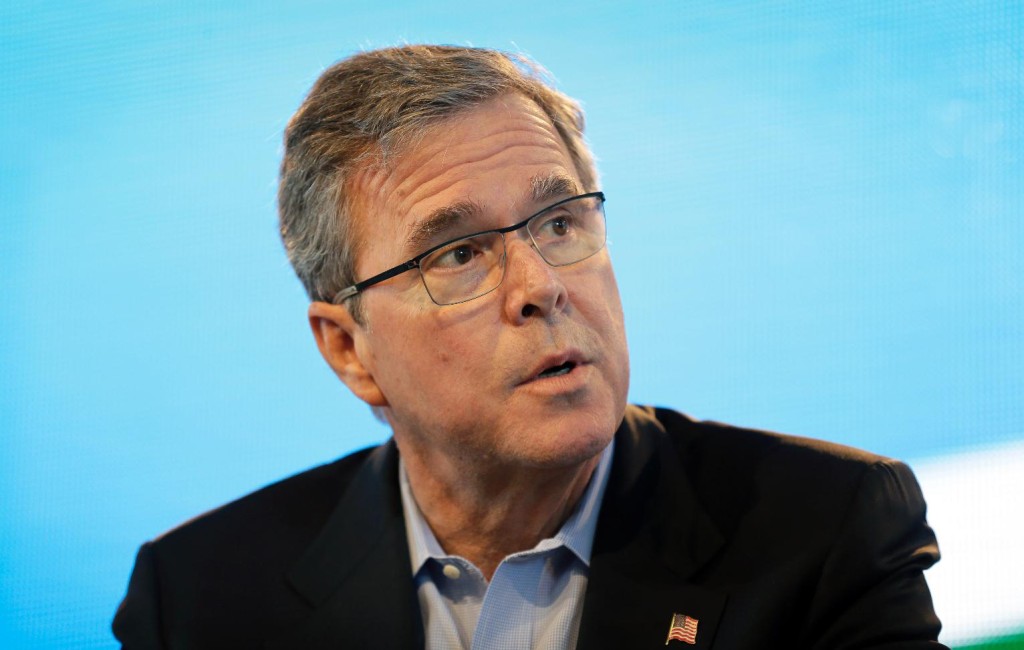
Jeb Bush launched a Republican presidential bid months in the making Monday with a vow to get Washington “out of the business of causing problems” and to stay true to his beliefs: easier said than done in a bristling primary contest where his conservative credentials will be sharply challenged. “I will campaign as I would serve, going everywhere, speaking to everyone, keeping my word, facing the issues without flinching,” Bush said, opening his campaign at a rally near his south Florida home at Miami Dade College, where the institution’s large and diverse student body symbolizes the nation he seeks to lead. The former Florida governor, whose wife is Mexican-born, addressed the packed college arena in English and Spanish, an unusual twist for a political speech aimed at a national audience. “In any language,” Bush said, “my message will be an optimistic one because I am certain that we can make the decades just ahead in America the greatest time ever to be alive in this world.” Bush enters a 2016 Republican contest that will test both his vision of conservatism and his ability to distance himself from family. Neither his father, former President George H.W. Bush, nor his brother, former President George W. Bush, attended Monday’s announcement. The family was represented instead by Jeb Bush’s mother and former first lady, Barbara Bush, who once said that the country didn’t need yet another Bush as president, and by his son George P. Bush, recently elected Texas land commissioner. Before the event, the Bush campaign came out with a new logo, Jeb!, that conspicuously leaves out the Bush surname. And in his speech, he took on critics in both parties, particularly Hillary Rodham Clinton, the overwhelming favorite in the race for the Democratic presidential nomination. “The party now in the White House is planning a no-suspense primary, for a no-change election,” Bush said. “The presidency should not be passed on from one liberal to the next.” He later called out Clinton by name, and indirectly jabbed fellow Republicans, including his political protegé Florida Sen. Marco Rubio, who welcomed Bush into the 2016 contest earlier in the day. “We are not going to clean up the mess in Washington by electing the people who either helped create it or have proven incapable of fixing it,” Bush said. Bush joins the race in progress in some ways in a commanding position, in part because of his family connections. He has probably raised a record amount of money to support his candidacy and conceived of a new approach on how to structure his campaign, both aimed at allowing him to make a deep run into the GOP primaries. But on other measures, early public opinion polls among them, he has yet to break out. While unquestionably one of the top-tier candidates in the GOP race, he is also only one of several in a large and capable Republican field that does not have a true front-runner. In the past six months, Bush has made clear he will remain committed to his core beliefs in the campaign to come, even if his positions on immigration and education standards are deeply unpopular among the conservative base of the party that plays an outsized role in the GOP primaries. Tea Party leader Mark Meckler on Monday said Bush’s positions on education and immigration are “a nonstarter with many conservatives.” “There are two political dynasties eyeing 2016,” said Meckler, a co-founder of the Tea Party Patriots, one of the movement’s largest organizations, and now leader of Citizens for Self-Governance. “And before conservatives try to beat Hillary, they first need to beat Bush.” Yet a defiant Bush has showed little willingness to placate his party’s right wing. Instead, he aimed his message on Monday at the broader swath of the electorate that will ultimately decide the November 2016 general election. Minority voters, in particular, have fueled Democratic victories in the past two presidential elections. Of the five people on the speaking program before Bush, just one was a white male. Bush is one of 11 major Republicans in the hunt for the nomination. Wisconsin Gov. Scott Walker and Ohio Gov. John Kasich are among those still deciding whether to join a field that could end up just shy of 20. Bush’s critics in both parties have criticized him as aggressively as they would if he were the clear Republican favorite. Kentucky Sen. Rand Paul said Monday there’s “Bush-Clinton fatigue” in America. “I think some people have had enough Bushes and enough Clintons,” Paul said in an interview with The Associated Press. After touring four early-voting states, Bush quickly launches a private fundraising tour with stops in at least 11 cities before the end of the month. Two events alone, a reception at Union Station in Washington on Friday and a breakfast the following week on Seventh Avenue in New York, will account for almost $2 million in new campaign cash, according to invitations that list more than 75 already committed donors. Republished with permission of The Associated Press.
The Latest: Tea party Republicans criticize Jeb Bush

Former Florida Gov. Jeb Bush will enter the 2016 presidential campaign on Monday with a rally and speech at Miami Dade College, joining 10 other Republicans already in the race for the party’s nomination. Here’s the latest on what’s happening in the GOP race. • • • 1:35 p.m. (EDT) Bush is promising to go “everywhere” and speak to “everyone” in his presidential campaign. The former Florida governor will formally enter the 2016 presidential contest Monday afternoon with a speech in Miami. According to excerpts of his address released by his campaign, Bush will promise to “give it my all” and stay “true to what I believe” as he campaigns for the White House. As he often does, Bush is expected to speak in both Spanish and English. In his remarks, he says, “In any language, my message will be an optimistic one, because I am certain that we can make the decades just ahead in America the greatest time ever to be alive in this world.” He continues: “I will campaign as I would serve, going everywhere, speaking to everyone, keeping my word, facing the issues without flinching, and staying true to what I believe.” • • • 12 p.m. (EDT) Tea Party Republicans are voicing their displeasure with Jeb Bush in the hours leading up to his 2016 campaign kickoff. Bush would be the third member of his family to sit in the Oval Office, and Tea Party leader Mark Meckler says both George H.W. Bush and George W. Bush were “big-government” Republicans. The president of Citizens for Self-Governance says they contributed to “the increase in size, spending and involvement of government in America.” He also notes that Jeb Bush’s steadfast support for Common Core education standards and immigration reform “is a nonstarter with many conservatives.” Brent Bozell is the chairman of the conservative group ForAmerica. He calls Bush “unelectable.” Bozell says the GOP has in the recent past nominated three Republicans he says are moderates: Mitt Romney, John McCain and Bob Dole. They all lost, and Bozell says nominating another moderate would, quote, “be an exercise in futility.” • • • 10:30 a.m. (EDT) Marco Rubio is welcoming fellow Floridian Jeb Bush into the Republican race for president. Bush formally gets into the 2016 campaign Monday with an afternoon speech in Miami. Rubio has been campaigning since April, when he also launched his campaign from south Florida. In a statement, Rubio says he’s not exaggerating when he calls Bush his friend. He said, “He is someone I like, care for and respect.” The 62-year-old Bush was the 44-year-old Rubio’s mentor as Rubio was coming up through Florida politics. Many thought that Rubio, now a U.S. senator, wouldn’t enter the 2016 contest once Bush signaled his interest. Rubio is running anyway. He regularly calls for “a new generation of leadership” while on the campaign trail. Rubio took a different approach on Monday, calling Bush “a passionate advocate for what he believes.” Republished with permission of The Associated Press.
Jeb Bush still with much to prove in leaderless GOP 2016 race
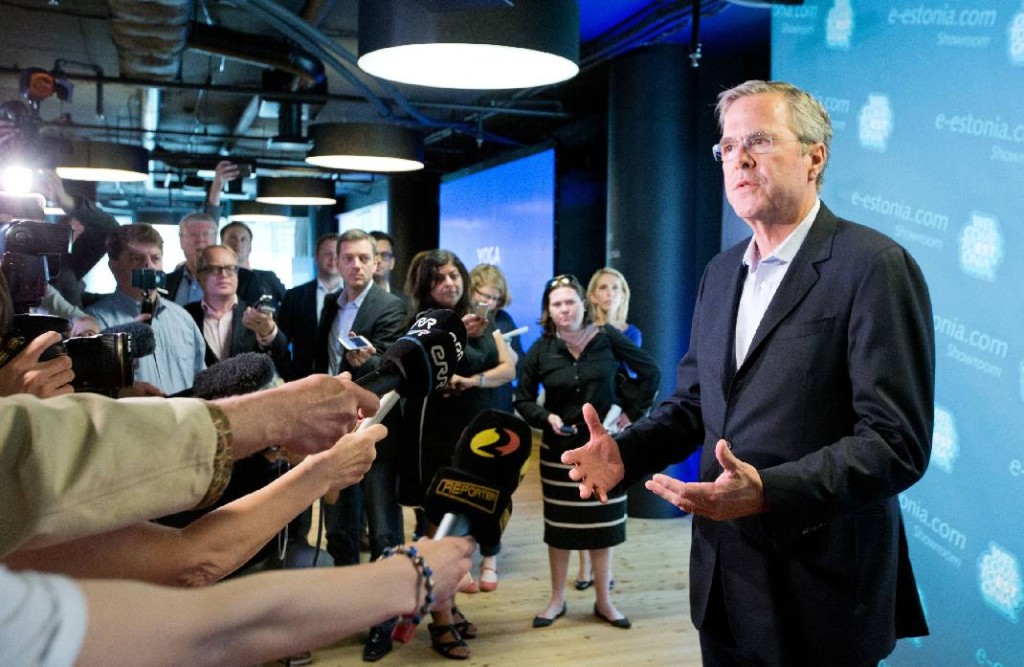
When Jeb Bush finally says on Monday that he’s running for president, he’ll begin the campaign with much to prove. Back in December, the former Florida governor said he was exploring a 2016 run, an announcement that by itself had the power to kick off the campaign. In the six months since, Bush probably has shattered a fundraising record as well as pioneering a new approach to White House campaigning. He has just completed a well-reviewed trip through Europe. Supporters had hoped that this son of one president and brother of another would by now hold a commanding position in an unwieldy Republican field. Yet he has not broken away from the pack. “I know that I’m going to have to go earn this,” Bush said this past week. “It’s a lot of work and I’m excited about the prospects of this. It’s a long haul. You start wherever you start, and you end a long way away from where we are today, so I just urge everybody to be a little more patient about this.” Bush, 62, planned to make his candidacy official during a Monday afternoon speech and rally at Miami Dade College, the nation’s largest university. He has failed to scare any potential rival from the race, except perhaps 2012 nominee Mitt Romney. He is unpopular among some of his party’s most passionate voters and little known beyond his home state despite the Bush name. “I thought Jeb would take up all the oxygen,” said Ohio Gov. John Kasich. “He hasn’t.” Emboldened by Bush’s slow rise, Kasich acknowledged this weekend that he is stepping up preparations for a possible campaign. Bush is one of 11 major Republicans in the hunt for the nomination. Kasich and a few others are still deciding whether to join a field that could end up just shy of 20. But few among them entered the race with such a high expectations of success as did Bush. Those expectations have seemed a burden at times. Take, for example, the question of whether Bush will report raising $100 million for his campaign in the first six months of the year. Lost amid the “will he or won’t he” is that Bush probably will have taken in far more than anyone else. Romney said Saturday it would not surprise him to learn that Bush had scooped up twice that of all the other GOP candidates combined. “By all appearances, he’s raised a lot of money,” Romney said, praising Bush’s “experienced and capable team.” ”At this stage, that’s a very important thing to do.” Even if he does not reach the $100 million mark, Bush will have amassed more in six months than Romney and his allies at a super political action committee raised for the entire year before the 2012 election. By contrast, a senior adviser to Wisconsin Gov. Scott Walker, considered along with Bush among the few top-tier 2016 contenders, expects he will raise roughly $25 million through the end of June. The adviser spoke on the condition of anonymity to share internal fundraising details. Romney’s former fundraising chief, Spencer Zwick, said despite Bush likely commanding lead in the fundraising race, it’s not clear how much of an advantage he will hold over the field. “You don’t need $100 million to run a primary,” Zwick said. He suggested that multiple candidates would have the resources “to go the distance,” adding that “it doesn’t feel like anybody owns the dominant position.” Bush took lots of questions this past week about a supposed shake-up at campaign headquarters, even though only one member of his senior team — who remains on Bush’s staff — was affected. The attention exasperated Bush: “It’s June, for crying out loud,” he told reporters while in Berlin. “We’ve got a long way to go.” Still, Bush’s first six months back in politics since leaving the governor’s office in 2007 have been underwhelming at times. His low-key speaking style often leaves something to be desired, particularly when compared with some opponents. He sometimes gets snippy during long campaign days. While detailed policy questions are often his strength, he struggled for several days last month to answer a predictable question about the war in Iraq that his brother, former President George W. Bush, waged. “He would be an excellent president no doubt, but how far he can go in the process remains to be seen,” said John Rakolta Jr., the CEO of a Michigan construction company and a leading Romney donor. In his speech Monday, Bush planned to make the case that those involved in creating Washington’s problems cannot fix them. The point is designed to jab the Republican senators — including political protégé in Florida, Marco Rubio — in the race. Meanwhile, an allied super PAC fueled by Bush’s fundraising haul is developing an advertising strategy that will promote Bush’s record in Florida and attack his rivals. Illinois-based businessman Todd Ricketts, a Walker supporter, said it’s far too early to draw any conclusions about Bush or the rest of the field. “Once there’s a debate, we’ll have a clearer picture of who appears to be ready,” he said. Republished with permission of the Associated Press.


